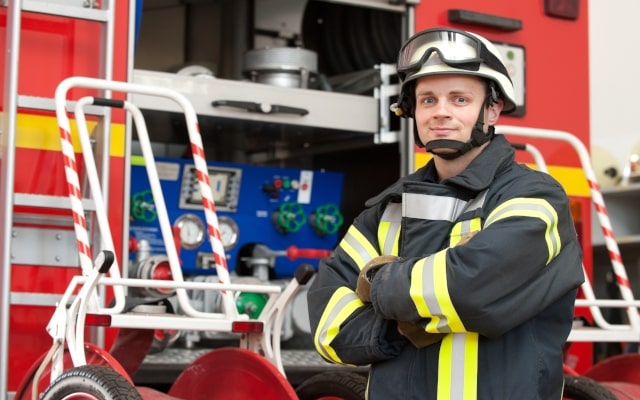A fire in the home is the stuff of nightmares. As well as putting you or your family in danger, the damage to your property and contents could be costly. Statistics from the Association of British Insurers (ABI) show that the average pay out by insurers for fire damage is £11,000.
Read on to learn what you’re entitled to with insurance against a home fire.

Does home insurance cover me for home fires?
Yes. Accidental fire damage to your home or your belongings is covered by standard home insurance policies. If you have separate buildings and contents insurance, fire damage will be included in both.
Often a fire - even a small one that might quickly be contained - results in a lot of smoke damage. Your contents insurance will cover smoke damage and any damage caused by the emergency services if they need to make a forced entry. It's also likely to cover any claims caused as a result of putting out the fire, such as water damage.
Can my fire insurance be invalidated?
In some cases, your insurance policy may not pay out. There are also some exclusions as to what you can claim for. Any smoke or fire damage from garden fires won’t be covered. Here are some common reasons why your insurance may be invalidated.
If the cause is arson
If it can be proven that the fire was started deliberately (arson) then you won’t be able to claim on your insurance. One of the main reasons that people commit arson is to collect insurance money. Insurance companies are clued up about this type of insurance fraud, so when a claim is made after a fire, investigators are sent out to determine the cause of the fire. If the investigation shows that the fire was deliberate, you won’t be covered for any damages.
If your property is set on fire by someone else, most insurers (ourselves included) will cover you against malicious acts or vandalism involving fire.
If the property is left vacant
If you leave your property unoccupied for a long period - typically more than 30 days - you're probably not covered for fire damage. Most insurers ask you to let them know if you plan to leave your property unoccupied for longer periods of time and may apply conditions to your policy. This varies from insurer to insurer so be sure to check this before you go away.
If your home isn't protected
If you don't take proper precautions to protect your home – for instance, if you have smoke alarms but you've taken the batteries out – you could be invalidating your insurance after a fire. A quick fire safety check should make sure your alarms are working and your appliances are up to date.
If you have undeclared home improvements
if you don't tell your insurer that you've got workmen making changes to your home or you forget to tell them about any developments you’ve made to your house, you might be invalidating your claims. If your insurance doesn’t know about a loft conversion or a conservatory, for example, don’t expect it to be covered if it goes up in flames.
What to do after a fire
After the fire’s been put out, the fire services will examine your property to check how structurally safe it is. If the building is considered unsafe:
- The local building control officer will be told.
- Your property could be fenced off from the public.
- If there’s considerable damage the property might be demolished as a matter of public safety.
Finding temporary accommodation
If your home can’t be lived in because of the damage caused by the fire, then your insurer will usually cover the costs of alternative accommodation. Most home or building insurance policies include this as standard, while with some you'll need to have it added separately. It’s always important to check what’s included with your policy and never assume.
Your insurance policy will try to provide like-for-like accommodation when it comes to rehousing you. If you live in a one bed flat, don’t expect to be put up in a 4-bed semi-detached house. They'll also try and find you a similar property in the same local area. Where possible, they’ll try to find a place where your kids can still get to school easily, and you can commute to work or carry on with any regular activities.
If suitable alternative accommodation isn’t immediately available, you could be put up in a hotel while they consider your future options.
Will my insurance cover my pets too?
You’ll have to check your policy, but some policies do cover the cost of putting pets in kennels or catteries while finding you a suitable temporary home or finishing up repairing your home.
Fire prevention
- Fit smoke alarms on each floor of your home. Check regularly to make sure that they’re working.
- Don’t overload plugs – plugging too many electronics into a socket can cause overheating.
- Don’t leave your oven or hobs unattended for too long when making food.
- Check out our full list of fire prevention tips.
For home insurance that’ll help you out if you’re ever dealing with the aftermath of a fire, get in touch today.
